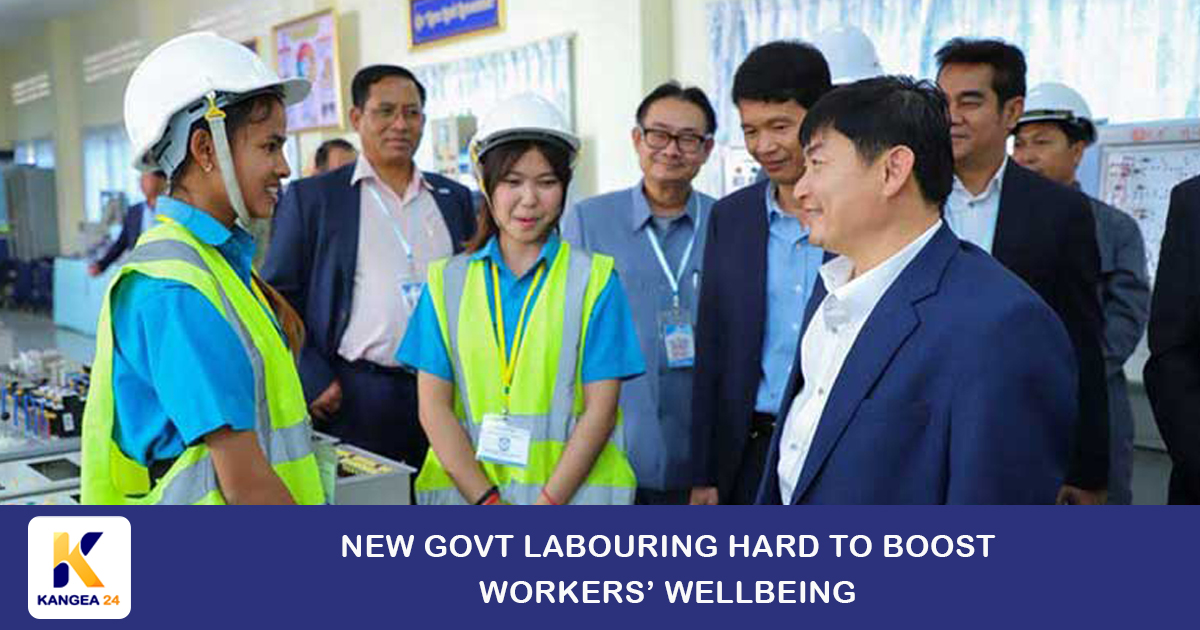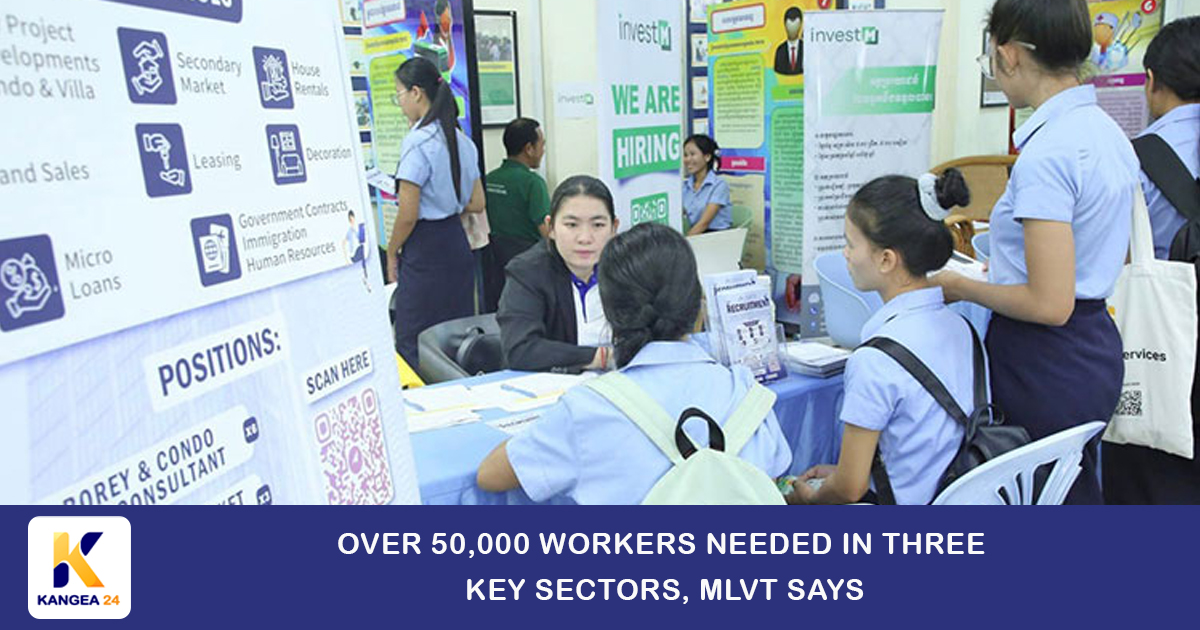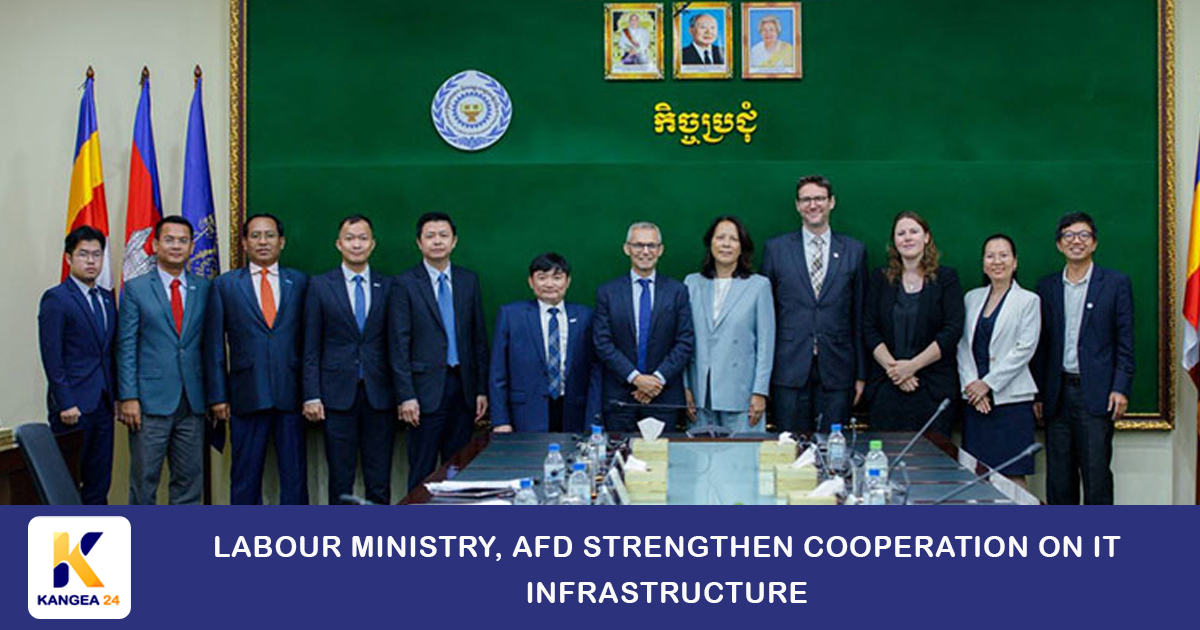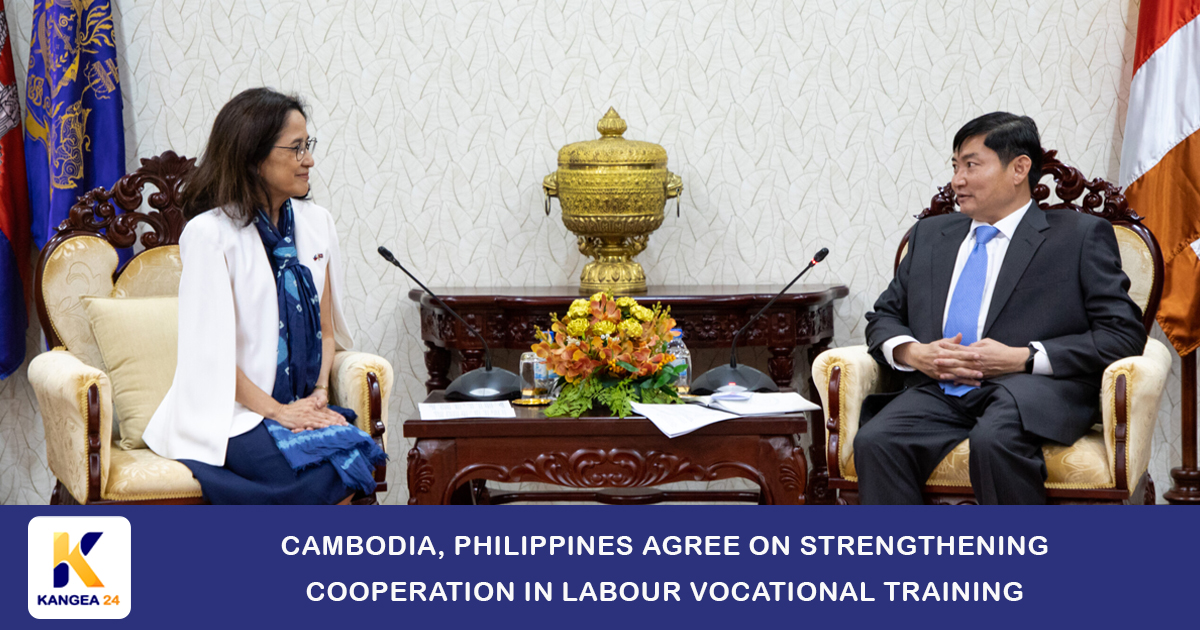





Yesterday marked the first year anniversary of Prime Minister Hun Manet’s new government which has brought about significant progress across several areas, including the labour sector.

The new government has prioritised Technical and Vocational Education and Training (TVET) for 1.5 million people, improved working conditions for workers, and expanded the National Social Security Fund (NSSF).
Minister of Labour and Vocational Training Heng Sour was appointed to lead the labour sector, a key priority for the government’s development strategy.
The labour sector reforms is part of the Pentagonal Strategy-Phase I, which encompasses five mottos, five strategic objectives, and five key priorities. The five mottos are growth, employment, equity, efficiency, and sustainability. The five strategic objectives are, ensuring economic growth, creating jobs, achieving poverty reduction, continuing to strengthen governance capacity, improve the quality of public institutions, and ensuring sustainable socio-economic development. The five key priorities are people, roads, water, electricity, and technology.
Ministry of Labour and Vocational Training spokesman Katta Orn told Khmer Times that under Sour’s leadership over the past year, the labour sector has seen notable achievements and significant progress.
These include improving working conditions, implementing the TVET 1.5 million programme, and expanding the National Social Security Fund (NSSF), which has been well-received by residents and workers.
“For the past year, Sour has diligently led the Ministry and its officials, resulting in commendable outcomes aligned with the Royal Government’s strategies in vocational training, healthcare (NSSF), job creation for youth, and improving worker transportation safety,” he said.
He added that a key achievement was the peaceful negotiation of minimum wage increases, resulting in agreements from all sides.
“The Minister led the $204 increase in minimum wages, harmonised factory operations, reduced the number of demonstrations and strikes, resolved disputes peacefully, helped tens of thousands of young people find jobs, legalised overseas workers, intervened timely for workers defrauded abroad, and expanded NSSF membership,” he said.
Increasing Minimum Wage for Garment Workers
Mr Hun Manet announced an increase in wages for workers in the textile, garment, footwear, and travel products sectors, raising the minimum wage by $4 in 2024 to a total of $204 per month.
The garment, textile, footwear, and travel goods industry is Cambodia’s largest foreign exchange earner, with approximately 1,300 factories and branches employing around 840,000 workers, mostly women.
Orn noted that in 1997, there were 64 factories with 80,000 workers. By 2024, the number of factories had increased to over 44,000, and the workforce had grown to more than 1.7 million. “In 1997, workers earned $40 per month. By 2024, the wage has increased to $204 per month. Compared to other countries, our minimum wage is higher than in Vietnam, Sri Lanka, Bangladesh, Myanmar, and Laos,” he said.
Cambodia’s exports of garments, footwear, and travel goods (GFT) rose by 16.89% in the first half of this year compared to the same period last year, earning $6.15 billion. The GFT sector is crucial for the Cambodian economy, accounting for 50% of the country’s total export earnings of $12.29 billion from January to June 2024.
Providing TVET to 1.5 Million Youth
Mr Hun Manet officially launched the TVET programme on November 14, 2023. Students receive free training and a $70 monthly stipend for four months. They can choose from 45 options in 10 key priority sectors, which include construction, electricity and energy, information technology, manufacturing, general mechanics, automotive repair, and tourism, among others.
According to the Ministry of Labour, in the first six months of 2024, at least 45,400 people registered for the TVET programme, with over 45,000 students enrolled. Of these, 18,000 are actively studying, 4,000 are interns, and more than 4,000 have graduated. “The Ministry is continuing to promote this programme among youths, families, and communities. We encourage more youth to participate, as TVET provides essential skills for better job prospects and higher salaries in the future,” he said.
Tep Samuth, a student in the TVET programme at the National Polytechnic Institute of Cambodia (NPIC), stated that it is a bridge for underprivileged youth to continue their education.
“With all this support, young people living in poverty have hope and can learn new skills without worrying about living conditions. I am thrilled to study this course, as it will provide me with valuable skills and job opportunities in the future,” he said.
Continued Expansion of NSSF
The total number of members enrolled in the National Social Security Fund (NSSF) has risen to over two million as of June 30, Orn said, citing figures from the Ministry. The number of self-employed individuals registered with NSSF has grown significantly, indicating increased trust and understanding of NSSF’s healthcare benefits.
“The Ministry continues to expand NSSF membership for self-employed individuals and their families. We are proud of this achievement, as residents can now access NSSF cards for healthcare benefits,” he said.
Additionally, the government has spent nearly $50 million on allowances for pregnant women from January 1, 2018, to the end of July 2024. This includes 3,009 women who gave birth to twins, 29 women who had triplets, and one woman who delivered quadruplets.
Visiting Workers at Factories
Recently, Minister Sour, along with Sun Sovannarith, Governor of Kampong Chhnang province, visited over 2,400 factory workers and dined with them at the EALYTEX (Cambodia) Garment Factory in Kampong Tralach District, Kampong Chhnang Province.
Sour engaged with workers to discuss government benefits, such as NSSF membership cards and working conditions. His visit underscores his commitment to understanding and addressing workers’ needs nationwide.
This visit is part of an ongoing effort by Sour to maintain close contact with factory workers, ensuring their welfare is continuously monitored and improved. His visit aligns with the broader vision of the Prime Minister and the President of the Senate Hun Sen to enhance workers’ conditions in line with the 10 recommendations set at the beginning of the last mandate.
Far Saly, President of the National Trade Unions Coalition, praised Sour for his commitment and frequent visits to workers’ factories and housing. “I commend him for his hard work throughout his mandate. His visits show genuine concern for workers’ well-being. We hope he will continue to understand and address workers’ issues and improve working conditions further. The situation for workers has significantly improved compared to ten years ago,” he said.
On August 23, 2023, Sour was appointed as the new Minister of MLVT. Sour, a seasoned professional with a proven track record in problem-solving and leadership, graduated from the National University of Management in Cambodia in 1998 and earned a Master’s degree in Public Policy and Taxation from Hitotsubashi University in Japan in 2003.
While in Japan, Sour demonstrated his leadership skills as President of the Cambodian Students Association, supporting fellow students and responding to crises such as the Niigata earthquake in 2003. In the labour sector, Sour has been instrumental in negotiating minimum wages and resolving labour disputes, earning respect for his peaceful negotiation approach and mutual understanding.




